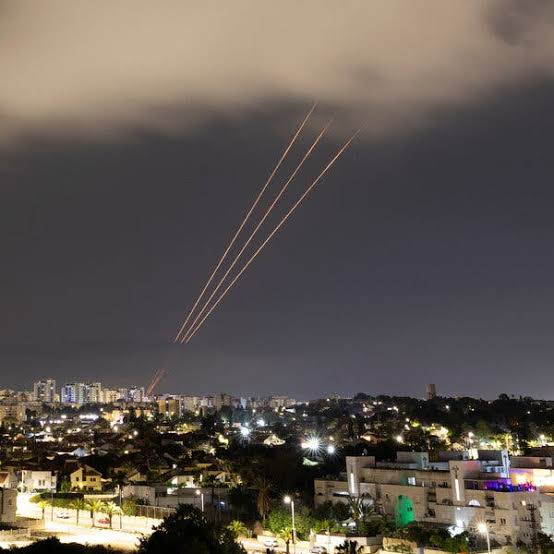In a dramatic escalation of tensions in the Middle East, Iran has launched a series of coordinated attacks on Israeli targets, further fueling the longstanding conflict between the two nations. The attacks, which occurred across multiple fronts, have raised fears of a wider regional confrontation and prompted swift condemnation from global leaders.
The onslaught began in the early hours of the morning, with reports emerging of missile strikes targeting Israeli military installations along the border with Lebanon. Hezbollah, the Iran-backed militant group based in Lebanon, is believed to have played a key role in orchestrating these attacks. Israeli defense forces swiftly responded with artillery fire and airstrikes, leading to a barrage of exchanges that have left casualties on both sides.
Simultaneously, Iranian-backed militias in Syria launched a wave of rocket attacks targeting Israeli positions in the Golan Heights. The strategic plateau, which Israel captured from Syria in the 1967 Six-Day War, has been a flashpoint for conflict between the two countries for decades. Israel’s Iron Dome defense system intercepted several of the incoming projectiles, but others struck their intended targets, causing damage and casualties.
In a bold move, Iran also deployed drones armed with explosives to carry out precision strikes on civilian infrastructure deep inside Israeli territory. Power plants, water treatment facilities, and communication networks were all reportedly targeted, leading to widespread disruptions and panic among the civilian population. Israeli authorities scrambled to contain the damage and restore essential services while simultaneously launching counterattacks against suspected Iranian drone bases.
The attacks have sent shockwaves across the region, with neighboring countries bracing for potential spillover effects. Jordan, Egypt, and Saudi Arabia, all key allies of the United States, have condemned Iran’s actions and pledged their support to Israel’s right to defend itself. However, there are concerns that the escalating violence could destabilize the entire region and exacerbate existing conflicts, including the war in Yemen and the ongoing tensions in Iraq.
Global leaders have called for an immediate de-escalation of hostilities and a return to dialogue to resolve differences through peaceful means. The United Nations Security Council convened an emergency session to address the crisis, with diplomats scrambling to find a diplomatic solution before the situation spirals out of control.
Meanwhile, the United States, which has long been a staunch ally of Israel, has vowed to stand by its partner and provide whatever assistance is necessary to ensure its security. President [Name] condemned Iran’s “reckless aggression” and warned that the United States would not hesitate to respond forcefully to any further provocations.
As the world watches nervously, the situation in the Middle East remains on a knife’s edge, with the potential for further escalation and bloodshed looming large. The coming days will be critical in determining whether diplomacy can prevail or if the region will descend into open conflict with devastating consequences for all involved.
